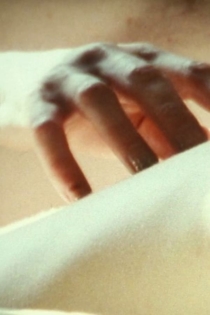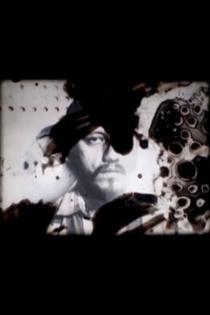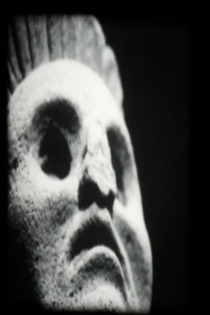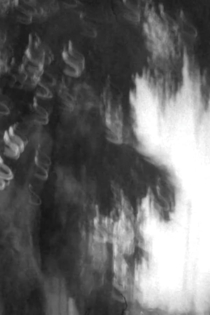
Annalisa D. Quagliata
2021Calypso
Annalisa D. Quagliata
Jamieson Edson, Cameron Stetz
"Alienated by the outside world, Calypso (Jamieson Edson) and Odysseus (Cameron Stetz) lay naked in bed allowing their bodies to be warmed up by the light of day, and the realness of touch. Penelope (Quagliata) denudes herself behind and in front of the camera. The voice of the Greek nymph Calypso is expressed by silent intertitles adapted from Homer’s Odyssey." - Mónica Savirón, Museum of the Moving Image
Calypso

Ñores (sin señalar)
Annalisa D. Quagliata
"... Quagliata manipulates Agustín Lara’s song, “Veracruz,” together with audio from interviews with activist, poet and film festival promoter Nadia Vera, and freelance photojournalist Rubén Espinosa, both of whom were assassinated. She also includes sound recordings of the young protestors in Xalapa denouncing governor Javier Duarte, and a genocide rarely echoed in the international media: the killing of 100,000 students in Mexico over eight years, their bodies disappeared. Quagliata juxtaposes this amalgam of soundtracks with re-photographed archival images of the drug war, physical violence, harassment and threats by police authorities and their allies, and the homicides of human right defenders and protectors of indigenous territories, as well as of Vera’s friends, also killed with impunity: Yesenia Quiroz, Mile Virginia Martín, and Alejandra Negrete." - Mónica Savirón, Museum of the Moving Image
Misters - Without Blame -

Xochipilli
Annalisa D. Quagliata
A look that surrounds the statue of Xochipilli, the prince of the flowers. The look that observes and pays homage to the Aztec god of the arts, the dancing and the poetry. The eye of the 21st century that makes a pre-spanish colonization statue dance, that brightens the terrain, the flowers, and some psychoactive plants. The figure seems to be in a trance; eyeing the sky, in communication with the divine.
Xochipilli

Árbol de la Noche Victoriosa
Annalisa D. Quagliata
500 years ago ... The Spanish had already committed the bloody massacre in the Templo Mayor and were entrenched in the Axayacatl palace ... when they tried to flee from Tenochtitlan ... the Mexican warriors killed hundreds of Spaniards and their Tlaxcala allies ... They say that when he arrived in Tacuba, Cortés began to cry alongside this tree ... on June 30, 1520
Árbol de la Noche Victoriosa
